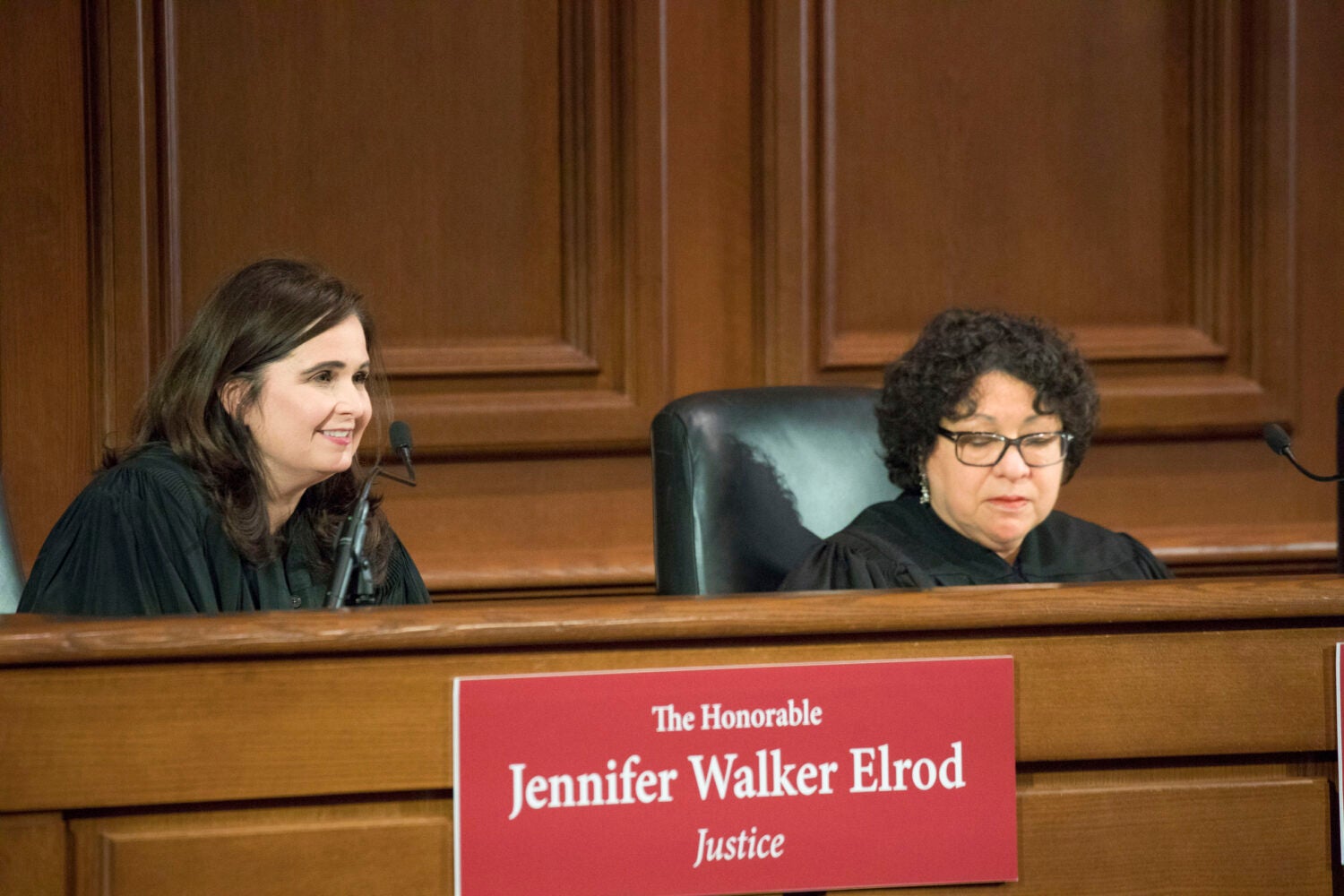When Jennifer Walker Elrod ’92 was about 8 years old, she went to jury duty. Technically, her grandmother was called to jury duty, but she took young Jennifer with her since she thought her granddaughter would enjoy the experience. She was proved right. As it turned out, she was not chosen to serve on the jury. But Jennifer wanted to go back for more, asking her grandmother if they could return to the courtroom to watch the trial. So they did.
Her grandmother never could have imagined how much time Elrod would go on to spend in a courtroom, as a law clerk and attorney, then as a state trial judge in Texas, and since 2007 as a judge on the United States Court of Appeals for the 5th Circuit. Although Elrod may not have aspired to become a judge when she saw her first trial as a child, she did shortly after she graduated from Harvard Law, through her experiences clerking with Judge Sim Lake of the United States District Court for the Southern District of Texas and as an attorney in the trial department of Baker Botts in Houston.
“I loved working for Judge Lake, and I loved the opportunities that I had being in court when I was a young lawyer,” she said.“I like the treasure hunting of trying to get the right answer for the problem rather than the adversarial process. It fits my temperament and ability and desire to be in the courtroom. And also I wanted to be in public service.”
Her path to the bench began when she ran for election to a vacant seat for a trial judge on the 190th District Court in Harris County, Texas. Running for office was a “risky proposition,” she said, for a law firm associate, but she won and in the next five years oversaw more than 200 trials. Nominated to the Court of Appeals by President George W. Bush, she describes herself as a textualist who follows the original public meaning of the law.
“I’m very much a believer that I’m in middle management and I don’t get to do my own thing, and that predictability is a very important part of the law,” said Elrod. “I think we have tools that we use to interpret the law and that we should use the tools. I’m a formalist in that way. I believe that we glean the answers to the questions by using the tools. I don’t believe that we should discern the answer and then fill in the methodology. That’s exactly the opposite of what a judge should do.”
“We really loved each other,” she said of her classmates. “It didn’t matter whether we were different, or, in the political world, completely different from one another. We wanted each other to do well and be successful, and we cheered for one another. And I think we still do.”
A native of Texas who lives in the Houston area, she got her undergraduate degree at Baylor University before attending Harvard Law, her first time in the Northeast. As a new law student, she once said in class that a plaintiff was “fixing” to do something. Her classmates were amused by her Texas terminology, but the professor, Phillip Areeda ’54, assured her she was exactly right. That put her at ease, and though her background differed from that of many of her classmates, she found common ground and understanding with them.
“We really loved each other,” she said. “It didn’t matter whether we were different, or, in the political world, completely different from one another. We wanted each other to do well and be successful, and we cheered for one another. And I think we still do.”
On the last day of that class with Professor Areeda, Elrod, who performed with the HLS Drama Society during her time at the school, sang a song based on “Don’t Cry for Me, Argentina” called “Don’t Call on Me, Phil Areeda.” And she continues to sing, including in an annual musical with the American Inns of Court.
She returned to HLS several years ago to judge the Ames Moot Court Competition, on a panel with Supreme Court Justice Sonia Sotomayor. When she was a student, Elrod’s team had lost in the moot court finals, so when she returned to Ames as a judge, she made sure to commiserate with the losing team. Take heart, she told them. Someday you may replace one of the judges in the Ames Courtroom. She should know. Patrick Higginbotham served as one of her Ames Moot Court judges back in fall 1991, and she succeeded him on the 5th Circuit.
